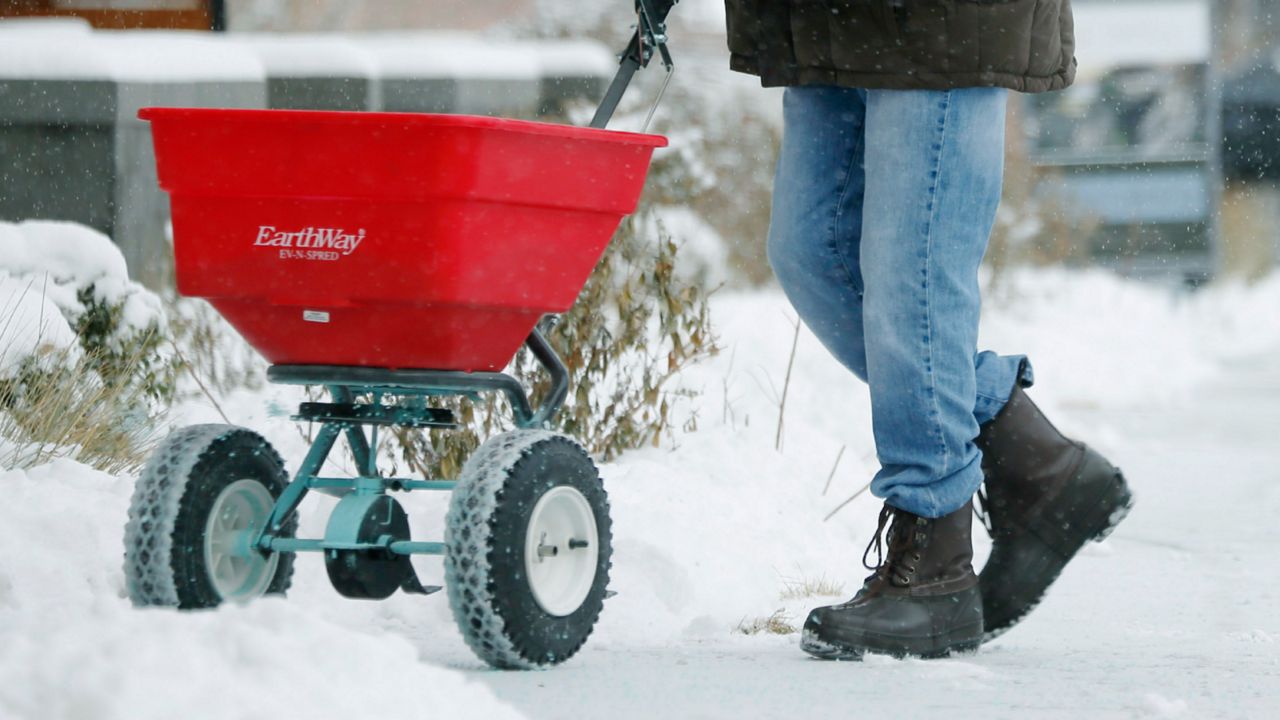While working in the short term to get rid of ice or snow, rock salt can cause damage to your driveways and sidewalks as the winter goes on.
What You Need To Know
- Rock salt can be dangerous to your driveway and the environment
- There are safer chemicals that can be used
- Non-chemical related options are available as well
More snow and winter weather is likely over the next several months. Knowing this, many individuals are heading to stores to stock up on new snow removal equipment, including shovels, snowblowers and other de-icing options, such as salt.
Rock salt is one of the most popular options when it comes to keeping your driveway and sidewalks ice-free. In fact, rock salt is so popular because it's rather cheap and readily available in many stores during the winter months. But does that mean it's really the best option for your driveway and everything around it?
Rock salt, otherwise known as sodium chloride, can be very damaging to the surfaces it interacts with due to its corrosive nature. It can get into cracks and crevices of the pavement, which can worsen preexisting holes that are already expanding through the usual freezing and thawing cycles that happen naturally.
By the time spring rolls around, you might notice more wear and tear on your driveway than in the fall. Rock salt can also have negative impacts on your lawn, plants and even your pet's paws.
While you spread the rock salt onto your driveway, runoff from snowmelt, or even from rain itself, could push the undissolved salt into your grass or plants that border your driveway or sidewalk.
Thankfully, there are other options for your driveway and sidewalks this winter.
If you're home and have the time, good old fashion shoveling throughout the storm is probably the safest and most eco-friendly option. However, we can't be home all the time for this to be the only option.
Throwing sand down instead of salt may not work to de-ice, but will help with traction as you try to navigate from your car into your house.
A far more expensive option is installing a heated driveway. This option may be a little less popular, though.
There are other chemicals that can be used that are more eco-friendly and get the job done well.
Safer chemicals such as Calcium Magnesium Acetate (CMA) and Urea are good alternatives!
CMA works to prevent snowflakes from sticking to each other on contact with a surface which can help slow the process of snow piling up.
Urea doesn't include salt, is eco-friendly and is safe for pets. It's a commonly used ingredient in fertilizer as well, so you know it won't harm your lawn either.
Our team of meteorologists dives deep into the science of weather and breaks down timely weather data and information. To view more weather and climate stories, check out our weather blogs section.



